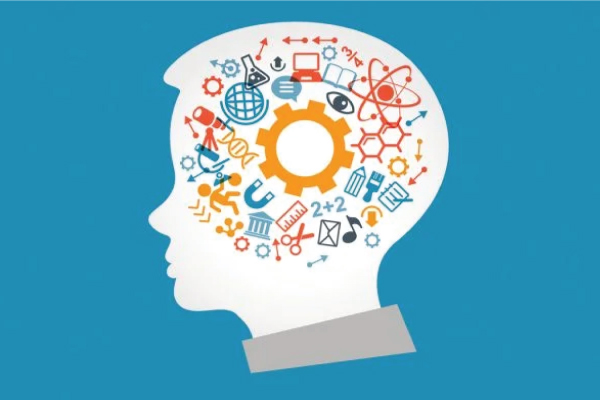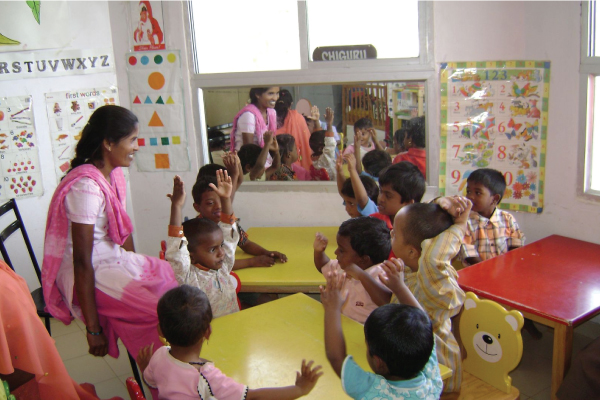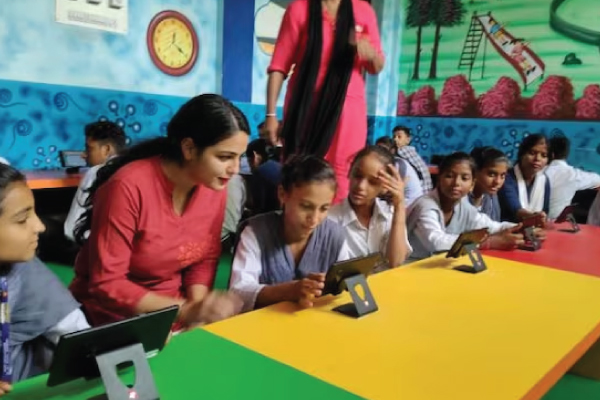Occupational therapy (OT) is a branch of medical health care that helps people of all ages with physical, sensory, or cognitive problems. OT may help them regain independence in all areas of their lives
Occupational therapists try to reduce barriers that affect a person's emotional, social, and physical needs. To achieve this, they use everyday activities, exercises, and other therapies.
With respect to a child, his/her primary occupation is to Play & Learn. OT helps kids involve in play, improves their school performance, and aids their daily activities thereby boosting their self-esteem and sense of accomplishment
If your child has trouble reading and spelling, speech therapy generally may not seem like the obvious answer. Most people think that speech therapists only work with those kids/adults who have trouble making certain sounds (articulation) or who have stutters or lisps. Speech therapists do handle such speech issues. But they also help children with other kinds of problems with spoken and written language, such as dyslexia, dyspraxia, and auditory processing disorder.

Speech therapy works:- A speech therapist figure out what kind of language problem the child has. They then determine its cause and decide on the best treatment. STs may help kids build skills by working with them in one-on-one settings & in small groups as well.
The benefits of speech therapy:- Speech therapy can help kids speak more clearly. This makes them feel more confident and less frustrated about speaking to others. Kids with language issues can benefit socially, emotionally, and academically from speech therapy.
Speech therapy is especially beneficial when its started early in life. In one study, 70 percent of preschool children with language issues who underwent speech therapy showed improvement in language skills.
Everyone want their child to have healthy development, but it’s not always clear if a child’s behaviour is a symptom of a normal stage in development or a sign of an abnormality. Child psychologists may help you in understanding the difference. This can help parents understand how to best communicate and connect with their child, teach their child coping mechanisms for managing emotions, and help their child progress and thrive in each new Development stage.
Child psychologist can also identify abnormal behaviours early, help detect the root of common behavioural issues such as learning issues, hyperactivity, or anxiety, and help children work through early childhood trauma. They can also help to evaluate and diagnose Development delays or abnormalities such as autism.
A child psychologist studies the mental, social and emotional development of children. Some of the areas of development include language development, personality, cognitive development, sexual development, and socio-emotional growth.



These professionals evaluate kids, diagnose mental/neuro-developmental disorders, administer psychological tests and conduct therapy sessions.
Special education may be described as a purposeful intervention designed to overcome or eliminate the obstacles that keep kids with disabilities from learning. In other words, it is
about providing children with disabilities with individualized alternative plans of instruction to help them succeed.
There are three, specific types of special education interventions:
Preventive Interventions: Preventive interventions are aimed at preventing potential or existing problems from becoming a disability. Special education in this form seeks to either stop something from happening or reduce a condition that has been identified.
Remedial Interventions: Remedial interventions are designed to reduce or eliminate the effects of a disability. They are generally used to teach children with disabilities skills that help them function successfully and independently. They may be aimed at academic, social, personal, and/or vocational goals.
Compensatory Interventions: Compensatory interventions involve teaching special skills or using special devices to improve or assist functioning. In other words, its about teaching a child to perform a task or conquer a skill in spite of a disability


A child’s specific needs dictate what is to be taught in special education. Some children with disabilities require intensive, systematic instruction to achieve success in daily living, school & community settings, while some must be taught skills to compensate for the existence of a disability. Others just need special accommodations and learn right along with their peers in regular classrooms The Individualized Education Program (IEP) is the cornerstone of special education. Each student with a diagnosis that qualifies them for special education has an individually tailored IEP with time bound goals. The purpose of an IEP is to ensure that the supports and services provided by special education teachers and other professionals meet the goals.